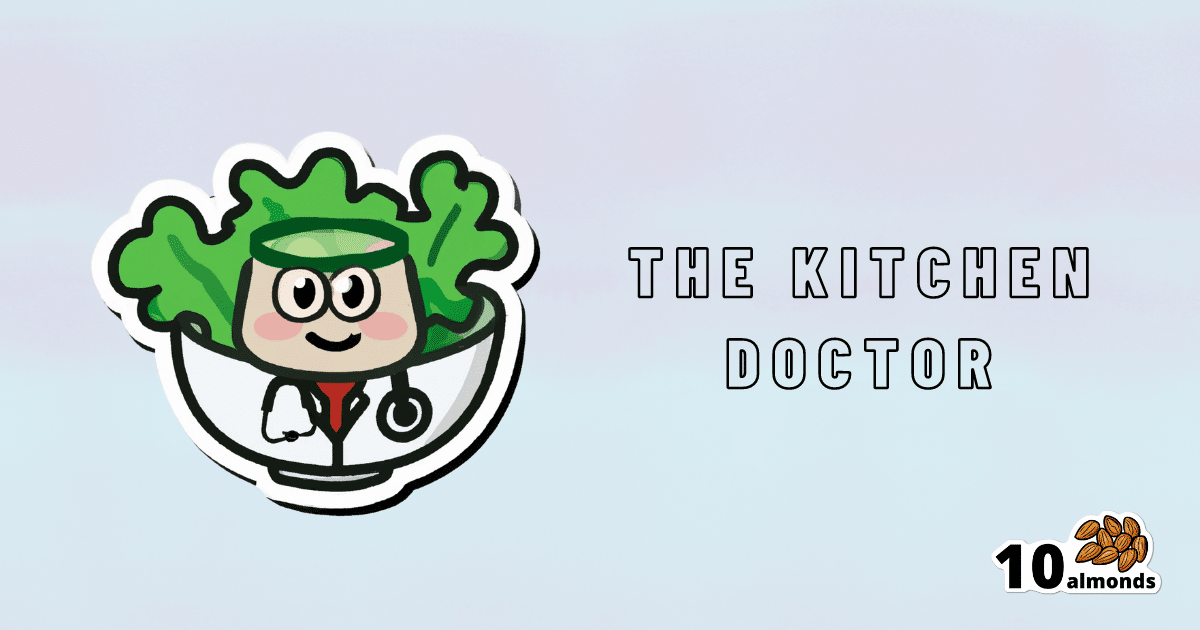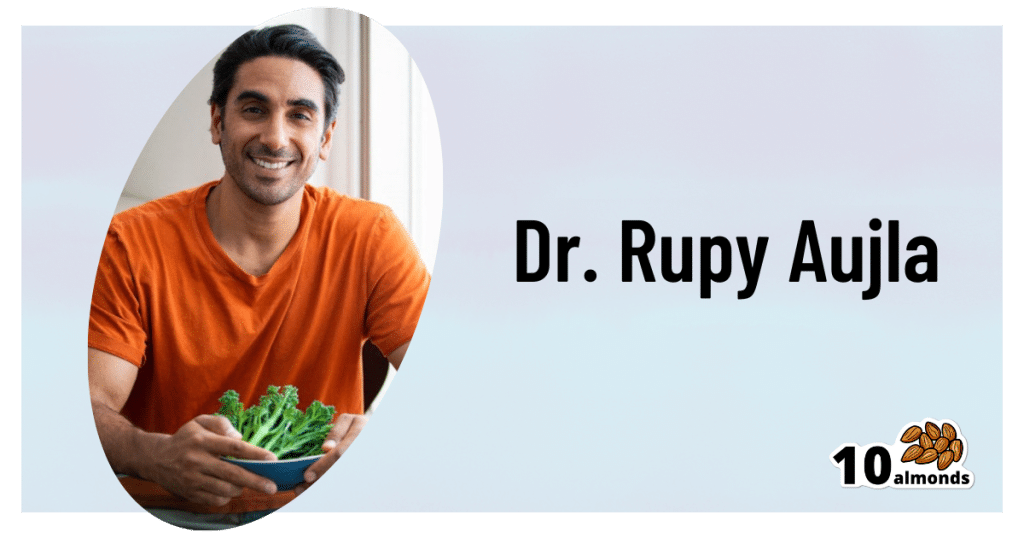The Kitchen Doctor
Dr. Rupy Aujla, a medical doctor, shares his journey of reversing his heart condition through nutrition. He emphasizes the importance of self-awareness and pleasure in food as a route to well-being.

Dr. Rupy Aujla: The Kitchen Doctor

This is Dr. Rupy Aujla, and he’s a medical doctor. He didn’t set out to become a “health influencer”.
But then, a significant heart condition changed his life. Having a stronger motivation to learn more about nutritional medicine, he did a deep dive into the scientific literature, because that’s what you do when your life is on the line, especially if you’re a doctor!
Using what he learned, he was able to reverse his condition using a food and lifestyle approach. Now, he devotes himself to sharing what he learned—and what he continues to learn as he goes along.
One important thing he learned because of what happened to him, was that he hadn’t been paying enough attention to what his body was trying to tell him.
He wants us to know about interoception—which isn’t a Chris Nolan movie. Rather, interoception is the sense of what is going on inside one’s own body.
The counterpart of this is exteroception: our ability to perceive the outside world by means of our various senses.
Interoception is still using the senses, but is sensing internal body sensations. Effectively, the brain interprets and integrates what happens in our organs.
When interoception goes wrong, researchers found, it can lead to a greater likelihood of mental health problems. Having an anxiety disorder, depression, mood disorder, or an eating disorder often comes with difficulties in sensing what is going on inside the body.
Improving our awareness of body cues
Those same researchers suggested therapies and strategies aimed at improving awareness of mind-body connections. For example, mindfulness-based stress reduction, yoga, meditation and movement-based treatments. They could improve awareness of body cues by attending to sensations of breathing, cognitions and other body states.
But where Dr. Aujla puts his focus is “the heart of the home”, the kitchen.
The pleasure of food
❝Eating is not simply ingesting a mixture of nutrients. Otherwise, we would all be eating astronaut food. But food is not only a tool for health. It’s also an important pleasure in life, allowing us to connect to others, the present moment and nature.❞
Dr. Rupy Aujla
Dr. Aujla wants to help shift any idea of a separation between health and pleasure, because he believes in food as a positive route to well-being, joy and health. For him, it starts with self-awareness and acceptance of the sensory pleasures of eating and nourishing our bodies, instead of focusing externally on avoiding perceived temptations.
Most importantly:
We can use the pleasure of food as an ally to healthy eating.
Instead of spending our time and energy fighting the urge to eat unhealthy things that may present a “quick fix” to some cravings but aren’t what our body actually wants, needs, Dr. Aujla advises us to pay just a little more attention, to make sure the body’s real needs are met.
His top tips for such are:
- Create an enjoyable relaxing eating environment
To help cultivate positive emotions around food and signal to the nervous system a shift to food-processing time. Try setting the table with nothing else on it beyond what’s relevant to the dinner, putting away distractions, using your favorite plates, tablecloth, etc.
- Take 3 deep abdominal breaths before eating
To help you relax and ground yourself in the present moment, which in turn is to prepare your digestive system to receive and digest food.
- Pay attention to the way you sit
Take some time to sit comfortably with your feet grounded on the floor, not slouching, to give your stomach space to digest the food.
- Appreciate what it took to bring this food to your plate
Who was involved in the growing process and production, the weather and soil it took to grow the food, and where in the world it came from.
- Enjoy the sensations
When you’re cooking, serving, and eating your food, be attentive to color, texture, aroma and even sound. Taste the individual ingredients and seasonings along the way, when safe and convenient to do so.
- Journal
If you like journaling, you can try adding a mindful eating section to that. Ask questions such as: “how did I feel before, during, and after the meal?”
In closing…
Remember that this is a process, not only on an individual level but as a society too.
Oftentimes it’s hard to eat healthily… We can be given to wonder even “what is healthy, after all?”, and we can be limited by what is available, what is affordable, and what we have time to prepare.
But if we make a conscious commitment to make the best choices we reasonably can as we go along, then small changes can soon add up.
Interested in what kind of recipes Dr. Aujla goes for?
Share This Post
Learn To Grow
Sign up for weekly gardening tips, product reviews and discounts.




